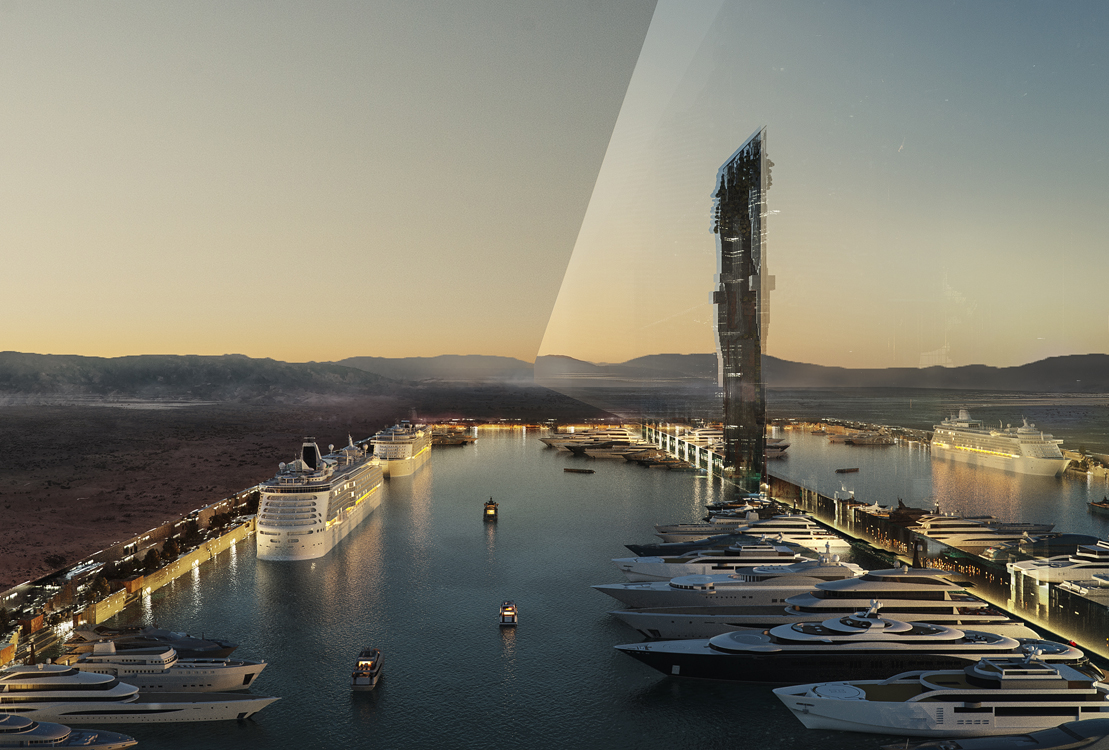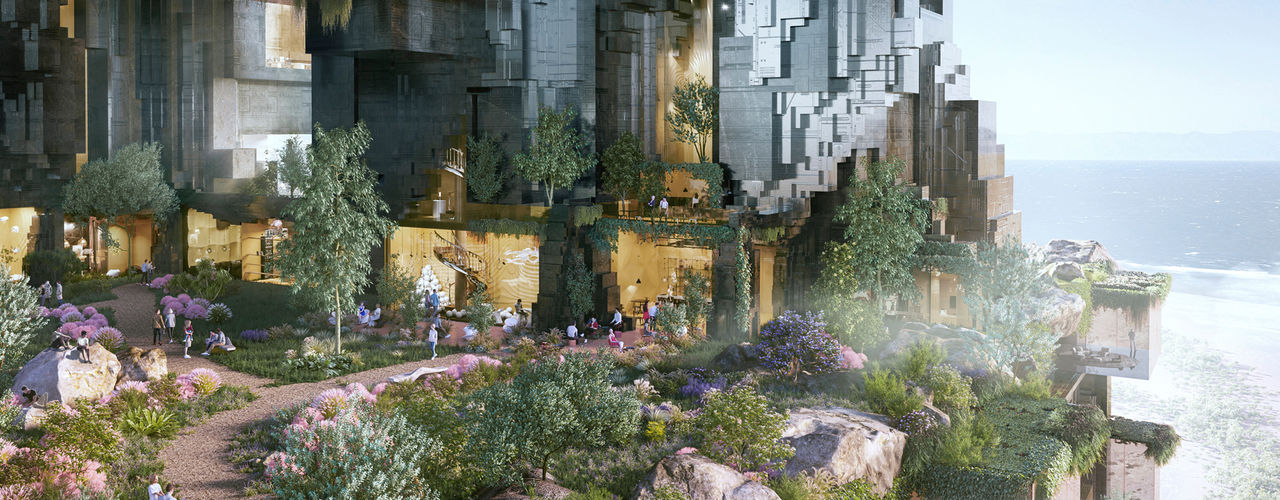 SHARE
SHARE
TONOMUS is creating a ‘cognitive’ city in the desert of Saudi Arabia. Joseph Bradley, the company’s CEO, shares what he’s learned since taking on the hugely ambitious project in an interview with Michael Wade.
Many people talk about smart or digitally enabled cities. For NEOM, you make a point of using the word “cognitive”. What is the difference, and why is it important?
Smart cities focus on the notion of real-time information. But we learned from COVID-19 that real-time is often too late. The damage is done. The idea of a cognitive city is one about being predictive and proactive. Not what’s happening, but what will happen. Smart cities tend to be siloed: smart lighting, smart mobility, or smart housing. It's very transactional. In a cognitive city, we’re talking about an entire ecosystem working together with a common data architecture. It will change how people live, work, and engage in a city. Cognitive technology promises to redefine urban living so that the city works for its citizens, not the other way around. Every moment will be used to its maximum potential. Data will be constantly analyzed to optimize transportation, services, and daily tasks. The aim is better predictability by optimizing secure private data use across sectors – focusing on tech to make people’s lives better, rather than purely automated. Urban decision-makers will benefit from having all of the data generated in different sectors speak to one another.
With NEOM, you have the chance to build something from scratch. What freedom does that give you? And what are you doing with that freedom?
In a brownfield environment, you're always trying to focus on integration and solving problems. NEOM allows us to question what we believe to be true. You spend a lot of time questioning the basic concepts, things you assumed to be true. It gives you freedom, and by questioning what you believe, you can take bigger steps forward. You don't sit there and wonder about the future; you create it.
Can you give us an example?
We asked ourselves: “Why can’t we have trust throughout a city?” Well, it’s because consent management is all over the place. So, we are building a consent management platform. Also, we think a lot about virtualization. How can we eliminate hardware? How can we make things more flexible and programmable? It's extremely challenging because we're trying to avoid locking ourselves in. We’ll make mistakes, and we have to be comfortable with that.
We are thinking through how trust powers a city. A city is a culmination of its services, but you need residents to interact with the platform that is the city, and for them to do that, they need to trust it.
That means building guard rails to empower people to see the value of sharing their data. Ultimately, the city is not defined by the number of people in it but by the number contributing to it – this goes back to the supplemental relationship between the digital and the physical. Geography will no longer be a barrier to participation.
When I first came to NEOM, I would have said the most important thing was having a common culture. I don't believe that anymore because when you come to NEOM, you understand it's impossible to have a common culture – there are so many different cultures. You need a common set of values, and you have to define, live, and preach those values every day to really benefit from the power of having this diverse workforce. We spend a lot of time ensuring that we are true to our values, that we're updating those values and that we understand the direction in which we're going for every decision. Are we violating a core value? And this has been a huge learning for me.

How will it be to live and work in NEOM? And how is technology feeding into that environment? And how is that consistent with your values and culture?
It’s important to us that what we do is not technology-led. Companies tend to become more focused on advancing the technology they are building than understanding the implications of that tech or what their users need. That is why we adopt a more customer and human-centric approach – understanding what solutions our users need for the problems they regularly face. Otherwise, we risk overlooking the truly innovative, simpler solutions as we aspire to build high-tech solutions. I speak a lot about hiring more employees with humanities backgrounds.
By building teams with cross-disciplinary experts from different academic backgrounds at the start of product development, we ensure we consider all angles of risk, ethical implications, regulatory frameworks, and impact.
People are taken aback when I tell them technology should be in the background. The whole city is built around, “How do we make you the best you possible?” That means giving you a consent management platform in which you can input all your preferences. Once we understand your preferences, we can meet your needs through a common data architecture. If you're in transportation and need to know when trucks are being loaded off the port or if there’s a sporting event, and you want to get from A to B in the most efficient way – all that information is seamlessly made available. The system can provide you with a frictionless environment. Imagine your typical travel experience today. It sucks, right? Pack your luggage, drag it to the airport, and check it in. Then you get off the plane and wait for the luggage, take it to your hotel, and maybe wait for your room. You’re tired, and your kids are screaming.
If you give us permission, we can make it so much better. We can recommend what clothes to bring. We can pick up your bag at home, and the next time you see it is when you walk into your hotel room. We know when your plane leaves, when you’re close to arriving, and what hotel you're going to. You can see the room in advance online. So that's what living in NEOM is like. It's like giving you back time, letting you do things you want to do. We call it frictionless living.
Some people could look at that and see it as a utopia. Others could look at it and see a privacy nightmare. You're saying there's a trade-off between the privacy you're willing to give up and the benefits you'll receive. And you’re redefining the equation – less privacy, but more benefits.
That's exactly it. NEOM is going to have seven million people, not seven billion. Some are not going to be comfortable with that level of privacy, and that's OK. We never violate individual trust because without trust, we don't get data, and without data, we can't create value. And so trust goes through everything we do, putting you in the center. If you deliver a great customer experience, I will continue to visit you. If you deliver a poor experience, I will do something else.
You were once either really good at digital or really good at the physical world. You were Amazon or Walmart. At NEOM, we’re trying to bridge the two worlds. We’re building a spatially aware place, meaning that whether you're physical or digital, it’s going to blend to make sure you have the optimum experience.
This article has been edited for length and clarity. All views expressed herein are those of the author and have been specifically developed and published in accordance with the principles of academic freedom. As such, such views are not necessarily held or endorsed by TONOMUS or its affiliates.



